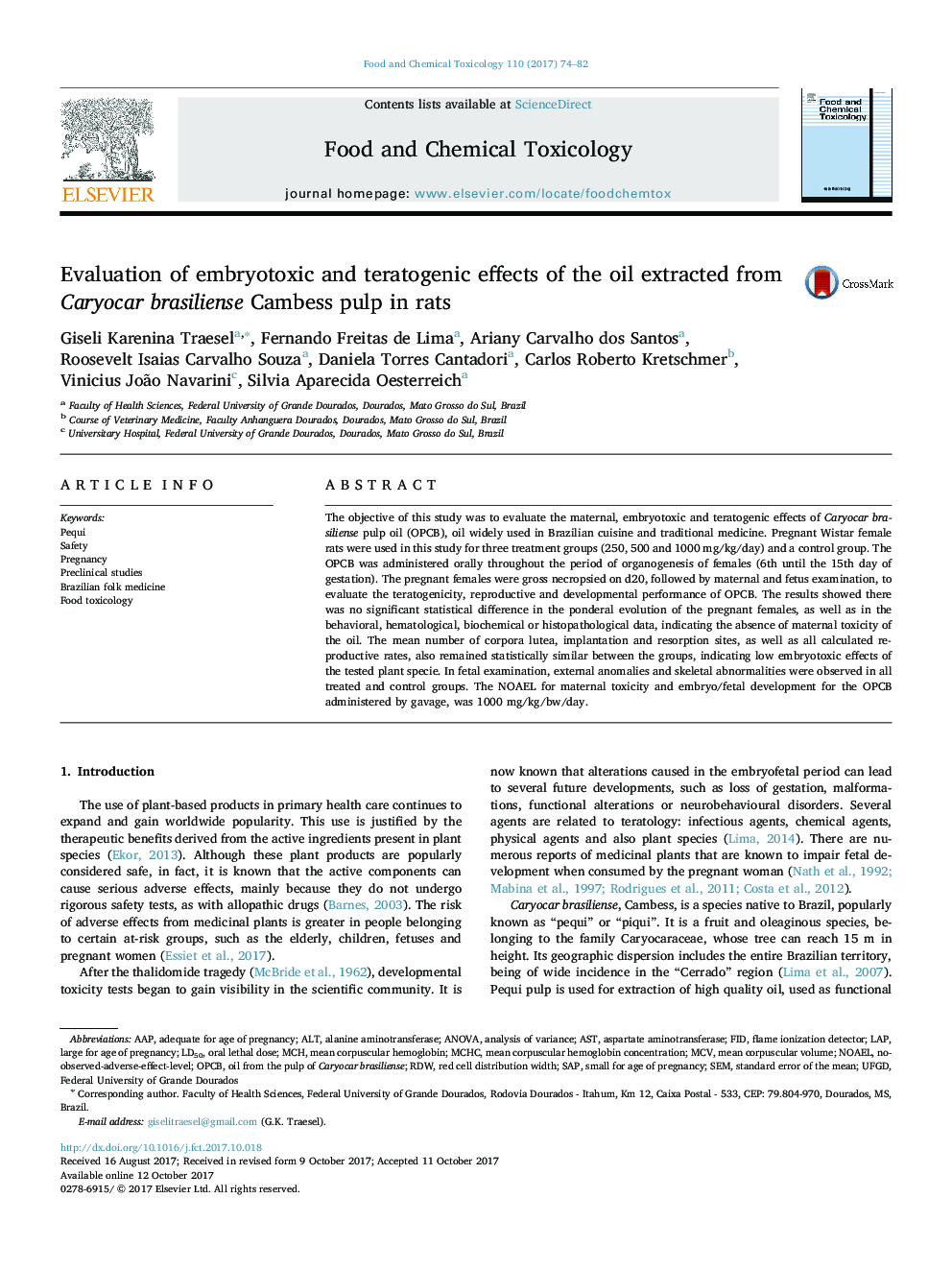| Article ID | Journal | Published Year | Pages | File Type |
|---|---|---|---|---|
| 5559928 | Food and Chemical Toxicology | 2017 | 9 Pages |
â¢The toxicological potential of Caryocar brasiliense pulp oil was investigated through preclinical studies.â¢The Caryocar brasiliense pulp oil was administered orally throughout the period of organogenesis.â¢No maternal, embryotoxic and teratogenic effects was observed for Caryocar brasiliense pulp oil.â¢The NOAEL of Caryocar brasiliense pulp oil were 1 g/kg bw/day, the highest dose tested.
The objective of this study was to evaluate the maternal, embryotoxic and teratogenic effects of Caryocar brasiliense pulp oil (OPCB), oil widely used in Brazilian cuisine and traditional medicine. Pregnant Wistar female rats were used in this study for three treatment groups (250, 500 and 1000Â mg/kg/day) and a control group. The OPCB was administered orally throughout the period of organogenesis of females (6th until the 15th day of gestation). The pregnant females were gross necropsied on d20, followed by maternal and fetus examination, to evaluate the teratogenicity, reproductive and developmental performance of OPCB. The results showed there was no significant statistical difference in the ponderal evolution of the pregnant females, as well as in the behavioral, hematological, biochemical or histopathological data, indicating the absence of maternal toxicity of the oil. The mean number of corpora lutea, implantation and resorption sites, as well as all calculated reproductive rates, also remained statistically similar between the groups, indicating low embryotoxic effects of the tested plant specie. In fetal examination, external anomalies and skeletal abnormalities were observed in all treated and control groups. The NOAEL for maternal toxicity and embryo/fetal development for the OPCB administered by gavage, was 1000Â mg/kg/bw/day.
